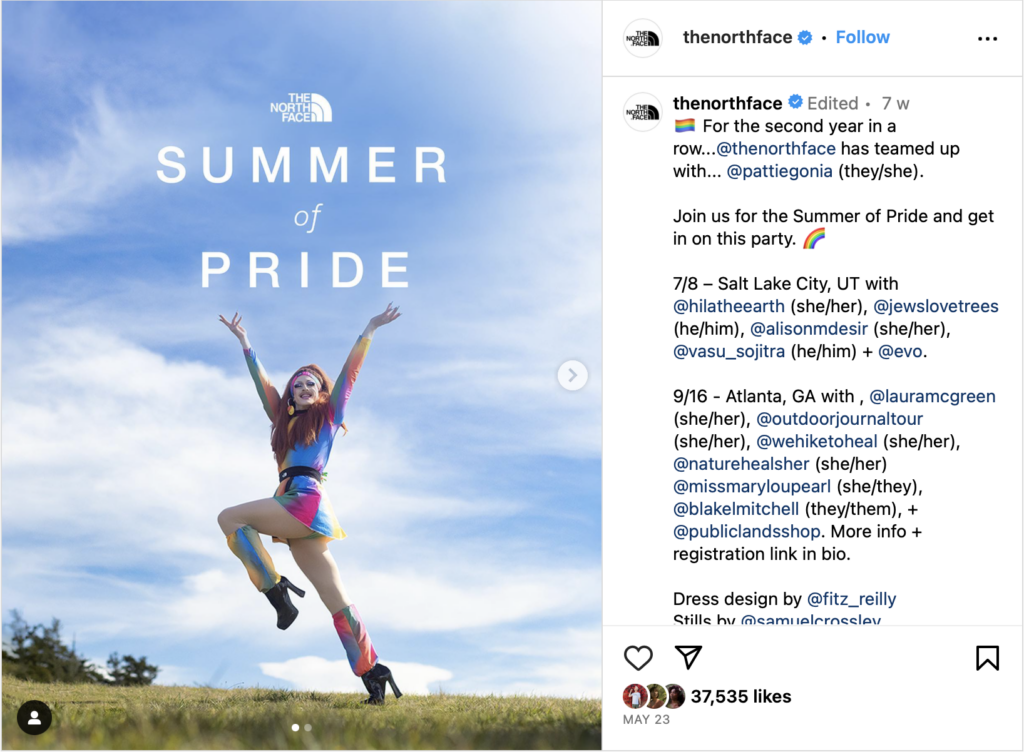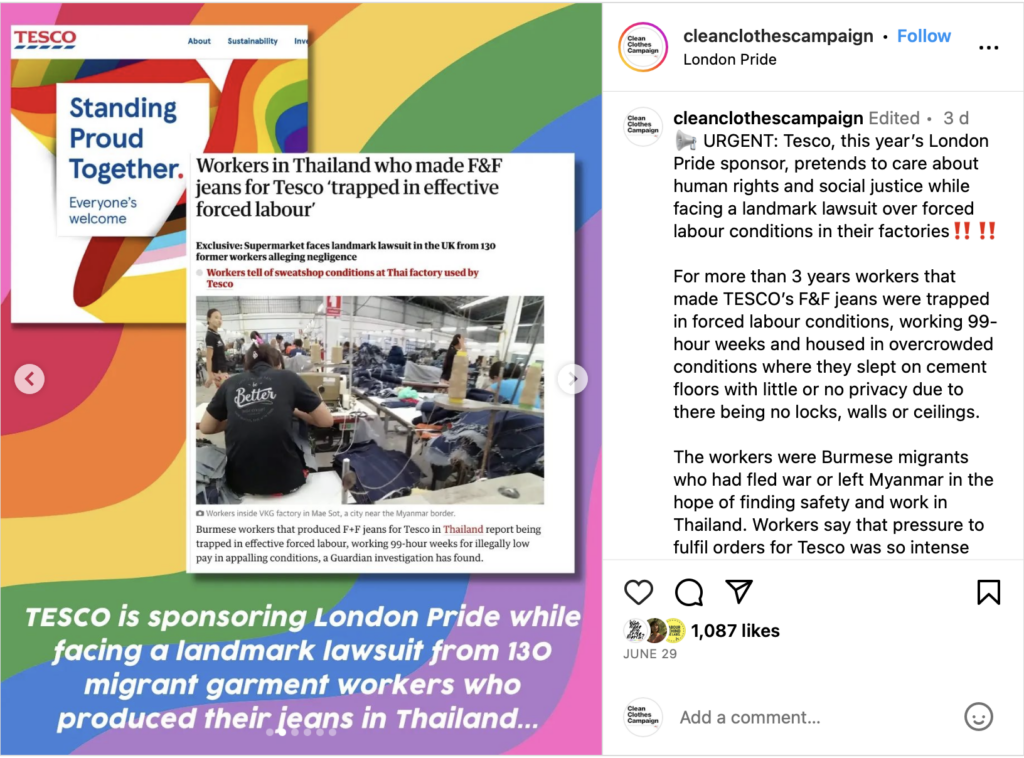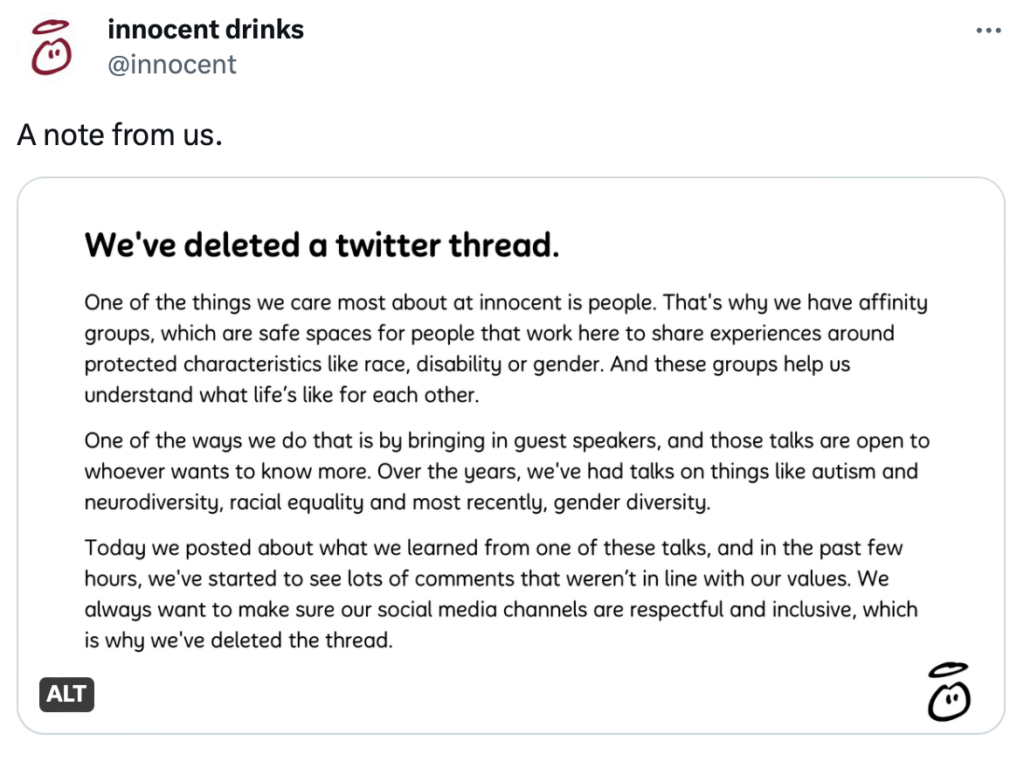Wins and fails from brands during Pride Month 2023
17/7/2023
Many marketers will have been wary of potential pinkwashing during June’s Pride Month. The phrase refers to performative action around LGBTQ+ rights, to boost sales and social credibility without any deeper engagement with the issues or community. Like donning a rainbow logo and dishing out Pride merch for the month, then remaining silent on all things LGBTQ+ for the rest of the year.
However, times are different in 2023. Now, any comms related to Pride or LGBTQ+ awareness campaigns is an activist position, whether that’s the intention or not.
What’s changed, then? Sadly, anti-LGBTQ+ sentiment is on the up. Last year, there was a 26% increase in hate crimes against the community in England and Wales.
And the situation online is more toxic than ever. A simple tweet or logo change in support of LGBTQ+ rights from any brand can attract a mass of vile comments. What may have seemed a small, even performative, gesture in the past now firmly positions you against homophobic, transphobic voices.
It’s why Outvertising – a UK-based advocacy group for LGBTQ+ inclusion in marketing – has called on brands not to roll back on Pride campaigns and messaging. “Advertisers need to show courage,” wrote their CEO Marty Davies. “This is a moment for businesses to double down on their efforts and assess what more they can do year round.”
The way to show genuine allyship and leadership is not just to put supportive LGBTQ+ messaging out there. It’s standing by it in the face of criticism and hate. These examples of how brands handled backlash during Pride Month 2023 teach us some lessons in getting it right and getting it wrong.
Lessons in allyship from brands during Pride Month 2023
The good: The North Face stands by drag queen campaign
Outdoor brand The North Face kicked off a special collab with drag artist @pattiegonia for Pride Month in the US, to promote diversity in outdoor spaces. Of course, some people weren’t happy about it. Their social feeds filled up with hateful comments and even a controversial Republican politician piled in.
But The North Face stuck by the campaign. They released a statement saying, “We recognise the opportunity our brand has to shape the future of the outdoors and we want that future to be a more accepting and loving place.” It’s likely they were anticipating some kind of reaction and were prepped to take on the haters.
The bad: Tesco’s selective stance on social issues
This year, Tesco was a Gold sponsor of London Pride and donated £100,000 to LGBTQ+ charities. Their visible support for the community might be positive, but it’s also highlighted how brands can present themselves as socially conscious in one way, while behaving differently in other parts of the business.
The supermarket has been called out for pinkwashing by anti-sweatshop campaign group Labour Behind The Label. Tesco is facing a landmark lawsuit because of forced labour conditions in the factories that made their F&F Jeans. They’re refusing to pay its former labourers for the injustice they endured. There are more details about the ins and outs of the case in this instagram post:
What this shows is the need for consistency from brands. You can’t put yourself front and centre of a campaign championing rights for one group, while oppressing other groups.
The ugly: Innocent backs down to transphobic tweeters
Things turned ugly over in Innocent Drinks’ Twitter replies in the lead up to Pride Month, when they shared a thread summarising a talk from trans youth charity Mermaids. Following a deluge of abusive responses and vows not to buy their drinks again, Innocent deleted the thread to keep their social channels “respectful and inclusive.”
It’s understandable to want to curb a sea of hateful comments. But by deleting the entire thread, rather than turning off replies for example, Innocent looked to be pandering to the critics. It’s in contrast to The North Face’s approach, which was to delete offensive comments but leave their Pride content in place.
Because of this, Innocent has been accused of performative allyship. It felt like perhaps they were unprepared for the reaction. It’s important not to be naive – if you have a big platform and post about trans issues, unfortunately you can expect the backlash. And remember, true allyship looks like standing by your LGBTQ+ messaging, teammates and customers when the going gets tough.
Read next: Ways to swap performative environmental action for year-round impact



